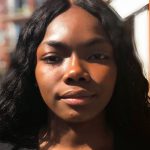By: Eugene Fernandes
Making over 921 million worldwide, Black Panther is undoubtedly the most popular movie in cinemas today.[1] With a prevalent buzz about it everywhere, it’s no wonder that the Marvel movie is the highest grossing film of 2018.
Black Panther’s storyline and cultural roots mark it as unique: African cultures heavily influence Black Panther. Pam, a UBCO student, said he recognized the social structures and traditions. “I’m African myself, so it was easier for me to relate and understand some of the frustrations,” he says. “For example, the idea of monarchy, and living with the demons of the dad’s past, things like that.”
Another student, Hannah Johnson, noted how Black Panther reached into untapped markets, making it a new and interesting story. “It was different from the usual Hollywood movies where the superhero gains his power arbitrarily,” she says. “Like in Spider Man where a spider bites him; in Black Panther, T’Challa has to fight (literally!) to become Black Panther and King of Wakanda.”
Two vivid memories of the movie for An-Noura Compaoré was a song in her native tongue, and clothing from her country. For her, Black Panther worked well “because of all of the representation it has given to people. People are drawn to things they can relate to; if you feel like you can relate to something and you appreciate what you’re being related to, you’ll be drawn to it, and when it’s positive and when you think it’s doing something for you.” Much of the clothing draws from African sources: each of the five tribes in the movie mimic the clothing palettes of five different African ethno-groups. For example, The Dora Milaje who protect and serve the Wakandan throne don clothing that the Masai people wear.[2]
Another unique characteristic was the composition of the cast. Davis Tessama noted it’s a first for a mainstream movie to have an (almost) all black cast, along with a black superhero and a black director, and that this was great because black people could finally see themselves in the characters. The data backs him up too: according to comScore, 37% of the audience for Black Panther was African American, more than 2x the usual 15%.[3]
Black Panther was released on February 16th, and you can see it here in Kelowna at Cineplex Cinemas in Orchard Plaza.
[1] Accessed on March 7th, 2018. Gross profits. https://www.the-numbers.com/movie/Black-Panther#tab=summary
[2] African Influences in Black Panther. https://fashionista.com/2018/02/marvel-black-panther-movie-costumes-hair-makeup
[3] Audience Demographics: https://www.vanityfair.com/hollywood/2018/02/black-panther-box-office-records

 Follow
Follow



